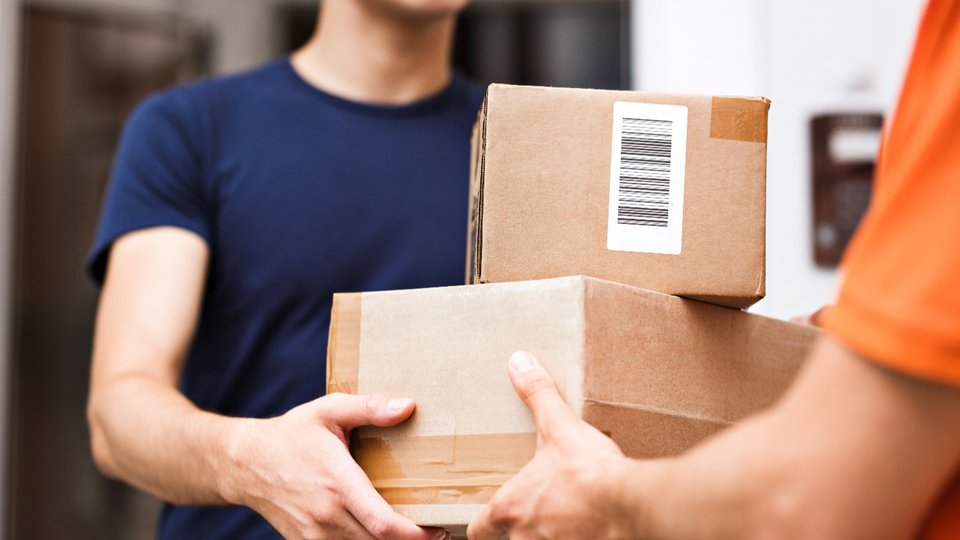Customer Service
The consumer psychology of last-mile delivery: Why reliability beats speed
The next big differentiator in e-commerce won’t be who’s fastest — it’ll be who consumers trust most to deliver on their promises.

November 24, 2025 by Sheila Berry — CRO, UniUni
For years, retail and e-commerce brands have bet big on speed, assuming that faster deliveries automatically created happier shoppers.
But new research from McKinsey shows a decisive shift: in 2022, speed ranked as the top delivery priority for consumers. By 2024, it had dropped to fifth place, replaced by a greater demand for reliability and predictability.
Consider the shopper who selects four-day shipping to ensure a package arrives after they return from a trip. When it shows up two days early, that "faster" delivery isn't a pleasant surprise — it's a source of stress. The package sits unattended, potentially exposed to theft or weather, and the shopper feels ignored. In that moment, the brand didn't deliver convenience — it broke trust.
As retailers race to speed up delivery times, they risk overlooking what matters most to consumers today: confidence that their package will arrive exactly as promised. Speed still matters, of course — but without reliability, it loses its value.
The cost of unpredictability
Most people instinctively crave certainty and control in their environment — yes, even when shopping online. Psychology research shows that when expectations are disrupted, our attention shifts and we're forced to recalibrate.
In contrast, consistency creates a sense of stability and confidence, while unpredictability tends to spark unease and doubt. It's no surprise, then, that shoppers are often willing to trade speed — and even cost — for predictability. They don't mind waiting longer if it means knowing exactly when their package will arrive, with no unwelcome surprises.
Why transparency and communication win out
Many brands promise low prices and fast shipping to win over shoppers. But when a shopper's real-world delivery experience is unpredictable, it can wipe out a brand's gains and lead to costly issues like a surge in "Where is my order?" calls, dissatisfied customers, negative reviews, and public complaints on social media. This makes unreliable delivery windows not just a customer experience problem, but a real threat to the bottom line.
The good news? Proactive communication, clear delivery windows, and real-time updates make shoppers feel that they're still in control. Those who receive timely notifications about delivery changes or delays remain confident in a brand, and a high level of transparency can even buoy a shopper's entire perspective when issues arise.
For example, imagine a shopper promised "delivery today" who receives neither their package nor any updates. Naturally, they're frustrated. Now compare that to a shopper told honestly, "Apologies for the delay. Your order will arrive tomorrow due to bad weather." That simple update can turn irritation into understanding, making a delay a forgivable mistake. Clear communication across the entire last-mile can preserve consumer trust, which delivery speed alone cannot.
What brands can do moving forward
Reliable, predictable deliveries, like fast shipping, require intention and investment. Brands need to champion these priorities and take concrete steps to deliver results.
First steps include:
- Prioritizing reliability in carrier selection over delivery speeds to guarantee the consistent, on-time deliveries, shoppers expect.
- Investing in transparency and communication tools that keep shoppers informed and in control, with real-time tracking, status notifications, and automated updates.
- Diversifying delivery models by incorporating lockers, retail pickup locations, and other flexible options that give shoppers a choice and don't overwhelm operations.
Final thoughts
Speed and low cost may attract shoppers, but reliability is what earns their loyalty. Today's consumers expect deliveries that are predictable, seamless, and transparent.
Brands that understand this, give shoppers meaningful choice, and communicate proactively turn ordinary delivery transactions into trust-building, loyalty-generating experiences.
The next big differentiator in e-commerce won't be who's fastest — it'll be who consumers trust most to deliver on their promises.
About Sheila Berry
Sheila Berry has nearly 2 decades of experience as a domain expert in D2C e-commerce logistics and functional expert in business development, strategic partnerships, and corporate development to foster growth. She’s held leadership positions at Newgistics and Borderfree, in addition to founding her own consultancy. Most recently she spent 3 years at Shopify running their Logistics Product Partnerships team globally and managing a $1.2B transportation P and L.
 ChatGPT
ChatGPT Grok
Grok Perplexity
Perplexity Claude
Claude




